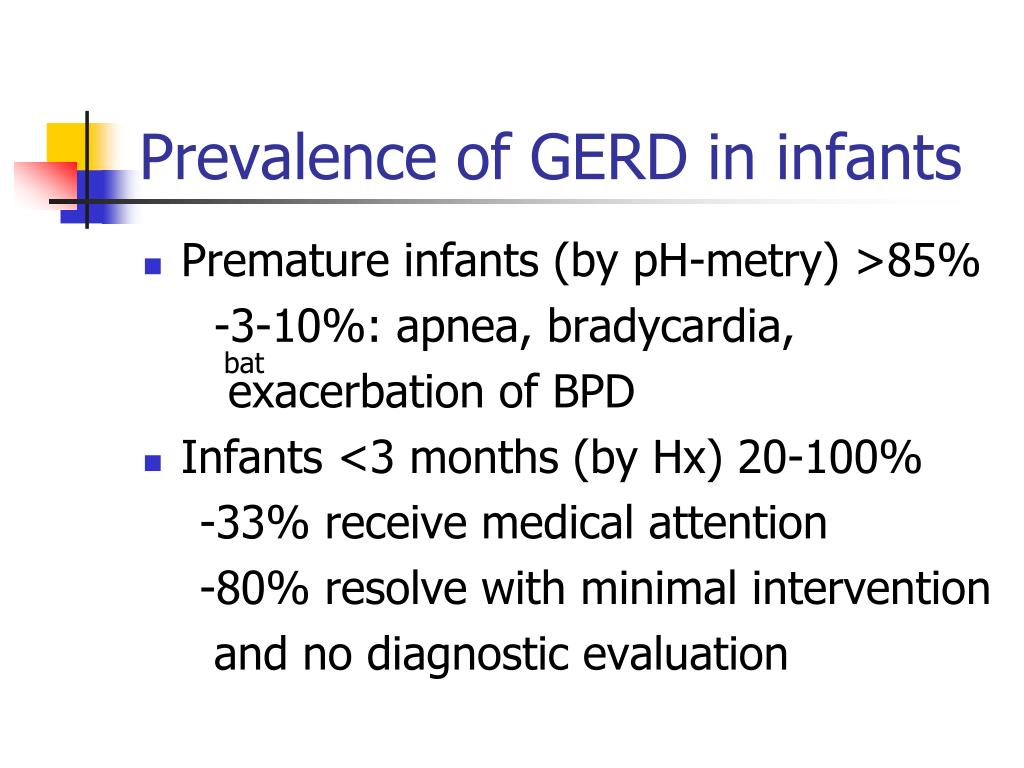Nonpharmacologic measures to control reflux, such as placing the infant in the left lateral position, elevating the head, feeding smaller volumes more frequently and using thickened formula have not been shown to reduce clinically assessed signs of ger in the preterm infant for infants older than 32 weeks’ postmenstrual age, safe sleep. Gastroesophageal reflux in premature infants. Many premature babies are diagnosed, either during their nicu stay or after, with gastroesophageal reflux (ger)—otherwise known simply as reflux—which results in the contents of the stomach moving back up through the esophagus.
gastroesophageal reflux in premature infants
Gastroesophageal reflux in premature infants an experienced nurse provides this overview of the complexities and pain of reflux common among children born premature by dianne i maroney, rn having an infant or child with gastroesophageal reflux (also called ger or reflux) can be extremely overwhelming for parents and families. Gastroesophageal reflux is a common, self-limited process in infants that usually resolves by six to 12 months of age. effective, conservative management involves thickened feedings, positional. Infant reflux occurs when food backs up (refluxes) from a baby's stomach, causing the baby to spit up. sometimes called gastroesophageal reflux (ger), the condition is rarely serious and becomes less common as a baby gets older..

